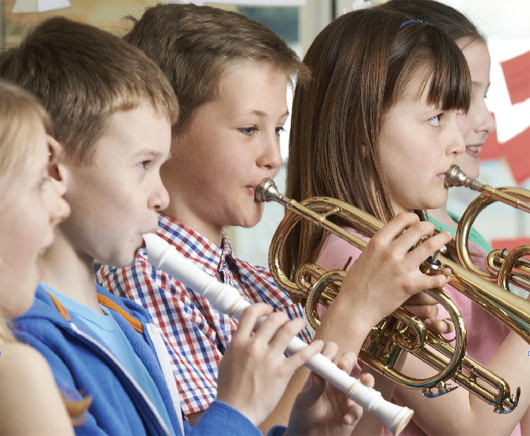Just the Right Fit
Choosing the Best School for Your Child

By Daniel Beauregard
Enrolling in a new school is an important moment in a child’s life.
Whether it’s elementary, middle or high school in a public, independent or religious setting, finding a nurturing and challenging institution is crucial.Atlanta offers a wealth of school options, including college preparatory, cultural immersion and experiential learning. The variety means parents need to know what type of school they’re looking for and the options available.
“The process is far easier when families know what they are looking for in a school,” says Brian Uitvlugt, co-founder, vice president and CFO at Eaton Academy in Roswell.
Making a List
Before visiting any schools, make a list of the most important qualities and programs they should have, ranging from a particular course of study to a strong athletics or music program. Create a list of the child’s academic, social and emotional strengths and needs. Then compare and contrast the offerings of different schools and how they match to the list.
“Factors such as student-to-teacher ratio, extracurricular offerings, availability of before-and-after care, quality of the curriculum and the variety of programs offered will vary significantly from school to school,” Uitvlugt says.
One of the best ways to ensure that a school meets a child’s needs is to include the child in the selection process. Start by asking the student about subjects he or she is passionate about or finds difficult, what hobbies, sports or outdoor activities he or she enjoys and for teens, if they have specific career goals and post-secondary plans.
“If the entire family gets involved, then the process becomes an opportunity for positive growth and can lead to success,” says Wendy Williams, an educational consultant and founder of Williams Educational Consultants, a Roswell firm assisting parents making school choices.
Learning about the quality public schools in an area is another good place to start. Begin by finding out which schools serve the neighborhood by checking the local district’s website, says Courtney Burnett, community liaison for City Schools of Decatur. Parents can also visit the Georgia Department of Education’s website (gadoe.org) to compare public schools in their district with other systems in the state.
If you want to explore independent schools that may be a good fit, the Atlanta Area Association of Independent Schools (aaais.org) and the Georgia Independent School Association (gisaschools.org) are good places to start.
Paying a Visit
It’s critical to learn about a school’s mission and values firsthand and also to get a feel for how the students and adults interact, so after doing the homework, it’s time to visit each prospective school on the list.
“Often, schools have special potential-parent tours,” says Burnett. “These are great to see the school, meet the administration and see classrooms in action.” Many schools encourage parents to make appointments for personal tours as well, and invite prospective families to attend open house events that offer an overview of the school’s climate and offerings.
Parents can also request that their child shadow another student at the prospective school. “It is very important for the parents and the student to get their own feel of the school’s ‘vibe,’” Uitvlugt says.
During these visits, both you and your child should be prepared to ask a lot of questions. It’s helpful to bring a core set of questions in writing to each visit and record the answers to help with comparisons later. Checklists of suggested questions are available (see below), but taking the time to develop additional ones of your own will help you make a decision best suited to your child’s individual needs and goals.
In addition to visiting a prospective school’s campus during a school day, it’s helpful to check out its extracurricular activities. “I highly recommend that families attend sporting events, plays or musicals to learn about a school’s community and athletic or artistic talents,” Williams says.
Attending an extracurricular activity is also a good way to meet other parents, who can be an invaluable resource for assessing a school. You can also gain insights by attending a PTA or booster club meeting, or even just stopping by at pickup or dropoff time to chat.
After each visit, sit down with your child and create a chart of each school’s strengths and weaknesses. Along with academic and extracurricular offerings, factor in such elements as travel time to and from the school, classroom and school size and, for an independent school, the costs involved. Review your finances to determine what commitment your family can reasonably make and whether or not to seek scholarship support.
Another thing to remember is that especially at some independent schools or those with specialized programs, places may be in high demand and admissions highly competitive. It’s wise to have at least one alternate choice in mind in the event that things do not go as planned with your preferred school, and be sure your child’s name is added to any waiting list.
Seeking Outside Help
So many factors play a role in choosing a school that parents may want to consider hiring an educational consultant, either to help review options or to give another perspective. Williams says her goal is to make the selection process easier. She visits local schools to understand an institution’s academic rigor and social personality.
Educational consultants offer services ranging from school assessments to student needs assessment and test preparation. The Independent Educational Consultants Association’s website (iecaonline.com) offers an exhaustive list of educational consultants both nationally and statewide, as well as resources for parents.
In the end, says Burnett, choosing a school is a personal decision.By taking time to think about and investigate the different options, and to ask the right questions of teachers, staffers and parents, the right choice can be made for everyone.
Six Questions for a Prospective School:
- 1. What is the school’s educational philosophy or mission?
- 2. Is the school accredited, and if so, by which organizations?
- 3. How does the school help students meet grade-level standards? Does this include gifted/talented or other programs for exceptional students or support systems for those with learning difficulties or other challenges?
- 4. Are there any extracurricular programs, such as arts, science or sports?
- 5. How do students get to school?
- 6. What are the school’s safety and security procedures?








